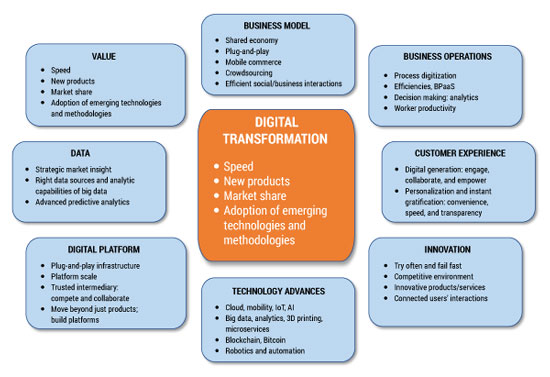
Digital transformation is the integration of digital technologies into all areas of a business, fundamentally changing how businesses operate and deliver value to customers. Big data analytics is a key driver for digital transformation, enabling businesses to make data-driven decisions and create new business models. In this article, we'll explore the ways that big data analytics is driving digital transformation.
What is Big Data Analytics?
Big data analytics is the process of analyzing large datasets to uncover insights and trends. Big data analytics tools can process vast amounts of data from a variety of sources, including social media, customer transactions, and website interactions. By analyzing this data, businesses can gain valuable insights into customer behavior, market trends, and operational efficiency.
The Role of Big Data Analytics in Digital Transformation
Big data analytics is playing a significant role in driving digital transformation in businesses across industries:
- Data-Driven Decision Making
Big data analytics is enabling businesses to make data-driven decisions. By analyzing large datasets, businesses can gain valuable insights into customer behavior, market trends, and operational efficiency, which can inform strategic decision-making.
- Improved Customer Experience
Big data analytics is also helping businesses to improve the customer experience. By analyzing data on customer behavior and preferences, businesses can personalize marketing messages, improve product recommendations, and tailor the user experience to individual preferences.
- New Business Models
Big data analytics is enabling businesses to create new business models. By analyzing data on customer behavior and preferences, businesses can identify new market opportunities and create new products and services that meet customer needs.
Examples of Big Data Analytics Driving Digital Transformation
There are many examples of big data analytics driving digital transformation:
- Healthcare
Healthcare providers are using big data analytics to improve patient outcomes, reduce costs, and optimize resource allocation. By analyzing patient data, healthcare providers can identify patterns and trends that can inform treatment decisions and improve patient outcomes.
- Retail
Retailers are using big data analytics to optimize inventory management, improve pricing strategies, and personalize the shopping experience for customers. By analyzing customer data, retailers can identify patterns and trends that can inform pricing and inventory decisions and improve the customer experience.
- Finance
Financial institutions are using big data analytics to detect fraud, improve risk management, and personalize financial services for customers. By analyzing financial data, financial institutions can identify patterns and trends that can inform risk management decisions and improve the customer experience.
Challenges of Big Data Analytics in Digital Transformation
While big data analytics offers many benefits to businesses, there are also challenges that need to be addressed:
- Data Privacy and Security
Data privacy and security are major concerns when it comes to big data analytics. As more and more data is collected and stored, there is a risk that it could be misused or exploited. There is a need for greater transparency and accountability around how data is collected, stored, and used.
- Data Quality
Data quality is another challenge in big data analytics. Ensuring that data is accurate, complete, and consistent can be difficult, especially when dealing with large volumes of data from multiple sources.
- Ethics and Bias
Finally, there is a need to address ethical concerns and bias in big data analytics. The algorithms used to analyze data could be biased or lead to unintended consequences, such as discrimination or misinformation.
Conclusion
Big data analytics is a key driver for digital transformation, enabling businesses to make data-driven decisions, improve the customer experience, and create new business models. However, there are also challenges that need to be addressed, including data privacy and security, data quality, and ethics and bias. As businesses continue to integrate big data analytics into their practices, it is important that these challenges are addressed in a way that prioritizes transparency, accountability, and the well-being of businesses, customers, and society as a whole.